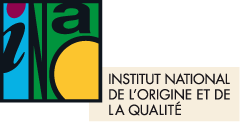This article is older and has been archived.
It remains accessible, but the information provided may be out of date or incorrect.
Defense and management organization
The "omnibus" regulation comes into force: procedures for amending specifications are simplified [ODG].
The provisions introduced by the CAP "omnibus" regulation concerning Regulation (EU) 1151/2012 came into force on June 8. They harmonize the rules between PDOs and PGIs in different sectors, in particular the modification of "standard" and "Union" specifications. Here's an update on these new concepts for the agri-food sector.

The European notions of "major" and "minor" modifications have been replaced in favor of "standard" and "Union" modifications. Implemented since 2019 in the wine sector, these notions are now extended to PDOs, PGIs and TSGs of other agri-food products.
"Union"
Changes are investigated by the European Commission. For agri-food PDOs and PGIs, they concern a modification that:
- Includes a change in the protected name or in the use of that name
- Risks annihilating the link to origin
- Effects new restrictions on marketing the product.
For STGs, all modifications fall into this category.
The procedure for examining applications broadly follows the scheme for recognizing a product under SIQO. An applicant group must have submitted an application to modify the specifications. This is followed by a commission of inquiry, a national objection procedure, a proposal from the relevant body, and then approval of the specifications. The application is then forwarded to the European Commission, which examines the file and conducts a European opposition procedure.
Changes to the specification are only applicable on national territory once the modification has been registered at European Union level.
"Standard"
These are all other modifications. They are directly approved by the member state and applicable from the publication of the national approval order.
The European typology for classifying modifications to specifications has no impact on the national procedure for examining applications. Thus, an applicant group must have submitted a request for modification of the specifications. Subsequently, there is usually the appointment of a commission of inquiry, a national opposition procedure, a proposal from the body concerned and then homologation, which leads to the specifications coming into force.
As the signs concerned are European, the homologated specifications are then communicated to the European Commission, without waiting for any feedback from it. Thus, once the specification modifications have been transmitted to Brussels for information, the procedure ends.
For PDOs and PGIs, applications for temporary modifications to the specification are considered as "standard" modifications. The TSG cannot apply for a temporary amendment.
The other new features of the "Omnibus" regulation
In addition to the provisions introduced in Regulation (EU) 1151/2012 on PDOs, PGIs and TSGs applicable to agricultural products and foodstuffs, the implementing regulations (EU) 668/2014 and delegated (EU) 664/2014 have also been adapted to set out the procedure to be followed by member states as described above.
In addition, the CAP "Omnibus" regulation brings specific changes to the wine sector and other elements relating to PDO and PGI products.
All news dedicated to ODGs
The INAO's Délégation territoriale Occitanie is organizing another regional meeting with local ODGs on Wednesday, June...
News
News
INAO is launching a new campaign to promote the 5 official signs of quality and origin (SIQO) to the general public...
News

News
The Val-de-Loire territorial delegation of the INAO is organizing another regional meeting with local ODGs on Tuesday...
News

News
